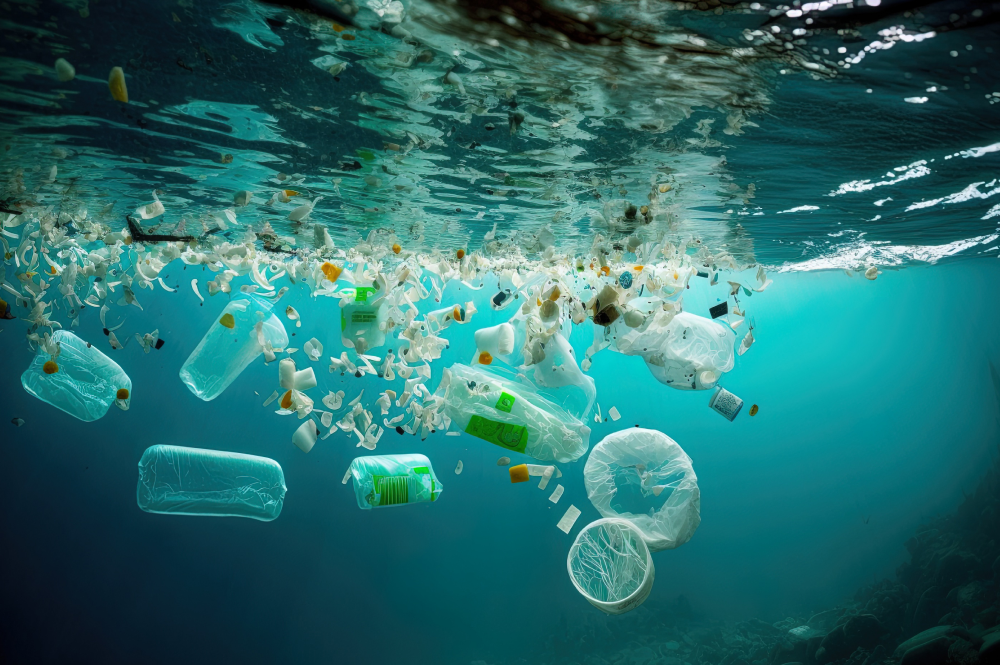Overfishing and Ocean Pollution Are a Threat to Marine Life

Overfishing is an ongoing global issue that puts many different species of fish at risk of depletion or extinction. However, with the rise of plastic pollution, carbon dioxide levels and fertiliser run-off in the planet’s oceans, marine life is not just at risk from overfishing, but from pollution too.
Overfishing
Overfishing is when a species of fish is removed from a body of water at a rate at which it cannot replenish, resulting in that particular species being depleted, very underpopulated and eventually extinct.
On average, the world consumes more fish per person than ever before and the majority of gains in production are from farmed fish. Back in 2013, 32% of the world’s fish stocks were exploited beyond their sustainable limit. This is a significant increase from the 10% exploitation of the 1970’s. However, this is not the only thing affecting sea life, pollution is also a key factor.
Pollution
Pollution affects oceans in many ways; from fertiliser run-off to plastic pollution and environmental effects.
Plastic Pollution
Plastic pollution is an ongoing occurrence in the oceans and currently, there is an estimated 5 million pieces of plastic in the oceans, which gets 8 million tonnes added to it each year. If this is to continue, the sea could contain more plastic than fish by weight by the middle of the century.
Fertiliser Run-Off
When it rains, the rainwater collects artificial fertilisers from the soil and carries it into the rivers and streams which eventually makes its way to the oceans. Fertiliser run-off is a serious environmental concern and has serious damaging effects for marine ecosystems as it is toxic and contains high levels of nitrogen that puts the lives of sea creatures at risk. Fertiliser tends to end up in the oceans through run-off.
Carbon Dioxide
The carbon dioxide (CO2) within our atmosphere also poses a risk to our oceans as it raises the world’s average sea-surface temperature. This makes the sea warm, meaning it is harder for nutrients in the water to travel to where they are most needed. If these nutrients aren’t able to move around the ocean ecosystems and fish have a lower chance of survival.
What Needs to be Done?
With more fish being taken from the oceans than needed and plastic pollution still increasing, we need to take measures to ensure no more plastic ends up in the sea and we start to remove what is already there. Statistics must be looked out to see how much overfishing is taking place and to lower it where possible.
2EA are registered Low Carbon Energy Assessors, Consultants and ESOS Lead Assessors, offering both energy management and reduction services ranging from CCL/CHPQA Management to Energy Saving Opportunity Scheme (ESOS) and Carbon Reduction Commitment (CRC) consultancy. For more information, please contact us either by email to info@2ea.co.uk or by calling 01293 521 350.


